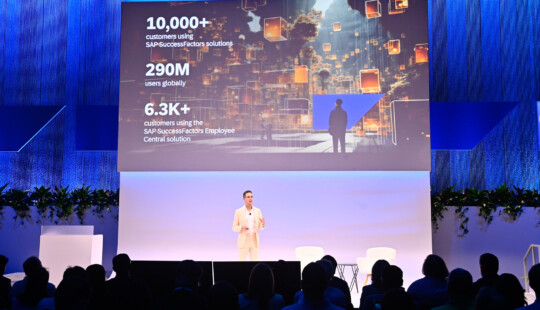As people worldwide take their protests to the streets and demand racial justice, some are also coming together from academia and corporations to take action that leads to lasting change.
In a SAPPHIRE NOW Unplugged conversation with Dr. Eddie Glaude Jr., chair of African American Studies at Princeton University, Dr. Judith Williams, chief diversity and inclusion officer at SAP, was hopeful about society’s ability to emerge stronger from the pain of this moment.
“Myself, our leadership team, and our more than 100,000 colleagues in over 180 countries around the world are deeply invested in driving action to ensure that this is not just a moment of awakening, but a generational shift in understanding that drives real change,” said Williams. “A movement, not a moment.”
Their fascinating exchange was thought-provoking and motivational, calling on all of us to fundamentally reimagine public safety and education.
Reframe Public Safety to Address Root Causes
Recognizing that the coronavirus has revealed inequalities in society, Glaude was optimistic about the next generation’s ability to move forward.
“There’s a clamoring for something new because in some ways this young generation has come of age in a moment of layered catastrophe,” Glaude said. “So they know something about the country is broken and they’re willing to risk it all to fundamentally change and transform who we take ourselves to be.”
Specific to policing, Glaude called for wholesale changes that would redefine public safety in a much broader sense. He suggested that communities spend more on education, housing, employment, retraining, and other resources to tackle root causes and find long-lasting solutions.
“Part of the work that we have to do is changing the frame,” he said. “What does it mean to move from policing surveillance and incarceration to a broader conception or idea of public safety? How do we change the way we conceive of policing? We need a notion of public safety that is tethered to an idea of investing in community. The idea is to reinvest monies in those underlying conditions – within resource-deprived communities that serve as a kind of environment that cultivates bad choices – to address it at the root [and not] just tinker around the edge.”
Racial Justice Requires Honesty
When Williams asked what individuals and corporations can do to help make progress against social injustice, Glaude challenged everyone to move past what he termed “this performance of empathy.”
“We tend to approach racial justice as if it’s a gift that you can just drop off – as if it’s a charitable thing to do,” he said. “If that’s the frame, then we’re in trouble because we’re still believing that racial justice is something that white folks can give to other folks. That’s not the way it works. We have to engage in an honest assessment of what we are doing as corporations and individuals in reproducing the reality of racial inequality.”
Glaude urged everyone to change the way business operates by honestly asking themselves what commitments they have made to advance African Americans and people of color within their businesses. This includes corporate policies such as contracts with minority companies.
Education is Not a Zero-Sum Game
While he acknowledged deep divides in American higher education, Glaude also urged everyone to shift their mindsets from scarcity to abundance.
“We need to be deliberate about giving people opportunities to not only dream dreams, but to make those dreams a reality and to do so in such a way to resist this idea that all of this is a zero-sum game,” he said. “As long as we believe that the pie is only so big, the moment we begin to include others, certain people among us assume that we’re taking stuff from them in order to give stuff to undeserved people. Instead of expanding the pie, we approach the question of racial justice as a zero-sum game. Until we change that, we will find ourselves on this racial hamster wheel over and over and over again, just running.”
Even as Glaude enumerated the many complex challenges around racial injustice, he ended on a can-do note, putting responsibility for lasting change squarely on all of us.
“We are the leaders we’ve been looking for,” he remarked. “If the country is going to change, it’s going to be us, and SAP can lead the way. We have to change if America is going to change.”
Follow me: @smgaler



